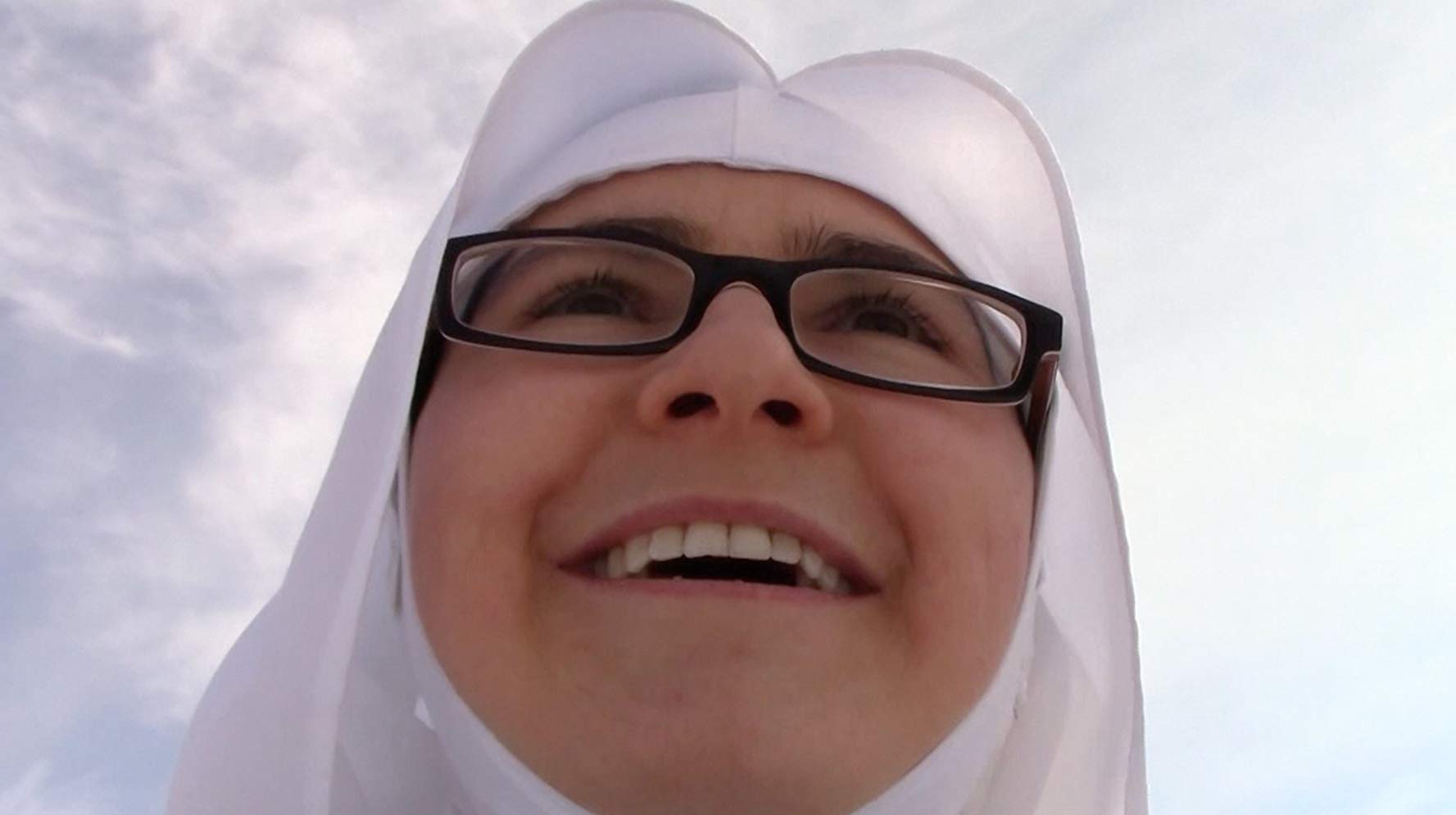
MPAA Rating: NR | Rating: ★★★½
Release year: 2018
Genre: Biography, Coming-of-Age, Documentary, Spiritual Director: Abbie Reese
Chosen: Custody of the Eyes is wonderfully humble. The documentary film project from director Abbie Reese required her to literally put the camera in her subject’s hands and walk away. Thankfully, these hands are quite capable, and Chosen features some of the most unexpectedly incredible framing and blocking in such a modest documentary. The one holding the camera is Sister Amata, a young cloistered nun living in a monastery in Illinois. A former blogger and graphic design artist, Chosen is a religious coming-of-age journey as we follow Heather (her pseudonym) into the deeply private world of contemplative spirituality. Shot with handheld digital cameras inside the monastery, the film elicits rich aesthetic and ethical questions about cinema’s capacity to see what is typically unseen, to invite us to witness worlds beyond our experience.
Sister Amata is a natural cinematographer, and where she chooses to place the camera is remarkable. Even with the limitations of a small digital camera like one would find at a Best Buy or Costco, she shoots footage with a keen eye and a capacity to capture ordinary moments with a sense of wonder. An early scene at the table where the nuns eat has a teacup placed squarely in the center of the frame; we can only see Sister Amata’s hands work with a piece of bread while a nun in the background quietly eats a meal. The hands scoop up crumbs from the table, lips wetting them to pick up every last bit. It’s a shot reminiscent of Kieslowski’s Three Colours: Blue, the sugar cube slowly soaking up coffee before plopping wonderfully into the cup. There are other shots of hands and feet moving throughout the monastery, praying or genuflecting, sweeping floors or raking leaves. Even when it’s just held in her hands while she walks, the camera serves as a silent, curious observer–a true God’s eye view–recording these moments in time. At one point, Sister Amata climbs a tree to get a better view of the monastery grounds. It’s playful, risky, and honestly doesn’t quite get the best shot. But were it not for the camera, she might never have dared to try. Film has a capacity to expand our imaginations, to prompt us to dream bigger even as we are taken into small, intimate spaces.
In an email conversation, Reese described her film to me as “Into Great Silence meets MTV,” alluding to The Real World and its confessional moments of people talking directly into the camera. Sister Amata works both behind and in front of the camera, acting as our narrator by sharing her story and life experiences, as if we were her confessor (although she is not discussing many of her sins here). She describes her hopes and desires, why she has chosen this vocation (or why God has chosen her for it), and both the joys and fears of choosing to live one’s life in a single location set apart from the rest of the world. She expresses sadness at not being able to see or touch her family members, yet she also describes how living in this way is a wondrous freedom.
The other nuns are quite camera shy, which seems appropriate. They’ve chosen to live apart from the world to devote themselves to God, and the presence of a videocamera is certain to be a distraction. This was Reese’s dilemma–how to show the world of the nuns without invading or altering that world. I’m still not sure it’s entirely possible; the presence of the camera would certainly change people’s behaviors once the camera is noticed. Yet Sister Amata’s humble approach and affable nature make it work. Indeed, the nuns are delightful people, laughing and smiling often, hard-working and diligent, and seeming to find sincere joy in the life of contemplation and poverty. Even as there are limits to what the camera can do, Chosen embodies the power of the cinematic medium–it transcends physical and cultural boundaries in order to bring together worlds apart. I will never be able to enter into such a monastery on my own, but I can visit this world through the beautiful trust Reese has found with the nuns. That’s grace.
IMDB Listing: https://www.imdb.com/title/tt6097244/
Leave a Reply